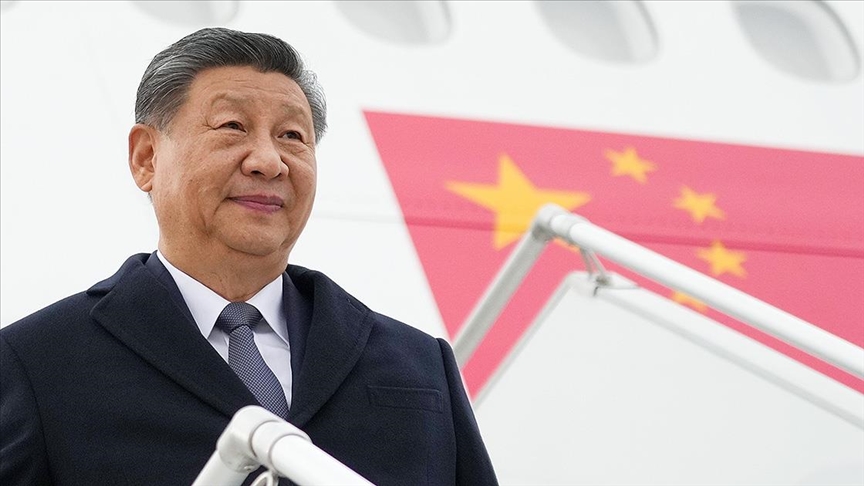
Chinese President Xi visits Vietnam amid rising trade tensions with the U.S.
Chinese President Xi visits Vietnam amid rising trade tensions with the U.S.
Vietnam, whose exports to the United States account for 25% of its gross domestic product, is expected to be among the countries most adversely affected by Donald Trump’s new tariff regime and the resulting shift in international trade.
Chinese President Xi Jinping is visiting Southeast Asian countries, which are key trade partners for China, during a time of increasing trade tensions and economic uncertainty caused by the U.S.'s tariff hikes under its “reciprocal tariffs” policy.
According to a statement from the Chinese Ministry of Foreign Affairs, President Xi began his three-nation tour with a visit to Vietnam.
On the first day of his visit, Xi met with General Secretary of the Communist Party of Vietnam, To Lam, and indirectly criticized the U.S. for its tariff policies, calling on Vietnam to “jointly oppose unilateral bullying” and to “defend global free trade.”
Highlighting that China and Vietnam are two countries that have benefited from globalization, Xi emphasized that both nations should support economic globalization and work to maintain the stability of industrial and supply chains.
Following the meeting, the two countries signed cooperation agreements in areas including transportation, artificial intelligence, customs enforcement and quarantine, agricultural trade, culture, sports, livelihood projects, human resources development, and media.
Trade showdown between the U.S. and China
Xi’s visit coincides with the tariff confrontation between the U.S. and China that erupted after President Donald Trump announced tariff increases under his “reciprocal tariffs” framework.
China was the first country to respond to the U.S.'s tariff hikes, imposing retaliatory measures of equal magnitude. As the tariff dispute escalated, the U.S. raised tariffs on Chinese goods to as high as 145%, while China imposed tariffs of up to 125% on American products.
While the U.S. administration postponed reciprocal tariffs on other countries for 90 days, the tariffs on Chinese goods were implemented immediately.
Trump later announced that certain tech products, such as smartphones, laptops, hard drives, processors, and chips, would be exempt from the additional tariffs.
Vietnam's critical position in supply chains
Under the reciprocal tariff framework, Trump imposed an additional 46% tariff on Vietnam, one of the highest among targeted countries.
In recent years, Vietnam has emerged as a key manufacturing hub in global supply chains, producing goods for international companies. With exports to the U.S. making up 25% of its GDP, Vietnam is expected to be one of the countries most negatively impacted by Trump’s new tariff regime and the resulting changes in global trade.
During Trump’s first term, Chinese manufacturers tried to evade U.S. tariffs by shifting parts of their production to Vietnam. This time, Trump is extending tariffs to other key manufacturing countries in Asia—such as Vietnam, Cambodia, Thailand, Indonesia, and Malaysia—effectively raising trade barriers along China's alternative routes.
The Vietnamese government has signaled its willingness to negotiate with Washington to avoid losing access to the U.S. market, while also pledging to regulate its trade relations with China.
Call for joint protection of the multilateral trade system
In an article published in the official newspaper of the Communist Party of Vietnam, Nhan Dan, Xi emphasized that China and Vietnam are “comrade and brother” countries. He stated that they must work together to protect the multilateral trade system, ensure the stability of global industry and supply chains, and create an open and cooperative international environment.
Xi pointed out that China and Vietnam share common beliefs, ideals, and broad strategic interests. He noted that in recent years, the two countries have deepened mutual political trust and developed close cooperation in areas ranging from border security and the fight against cross-border crime to foreign policy and national defense. He added that they hold similar positions on many international and regional issues and often work together.
Xi called on Vietnam to help promote the formation of a fair and orderly multipolar world by defending the common interests of developing nations alongside other countries in the Global South.
The Chinese leader will continue his Southeast Asia tour until April 18, visiting Malaysia and Cambodia after Vietnam.